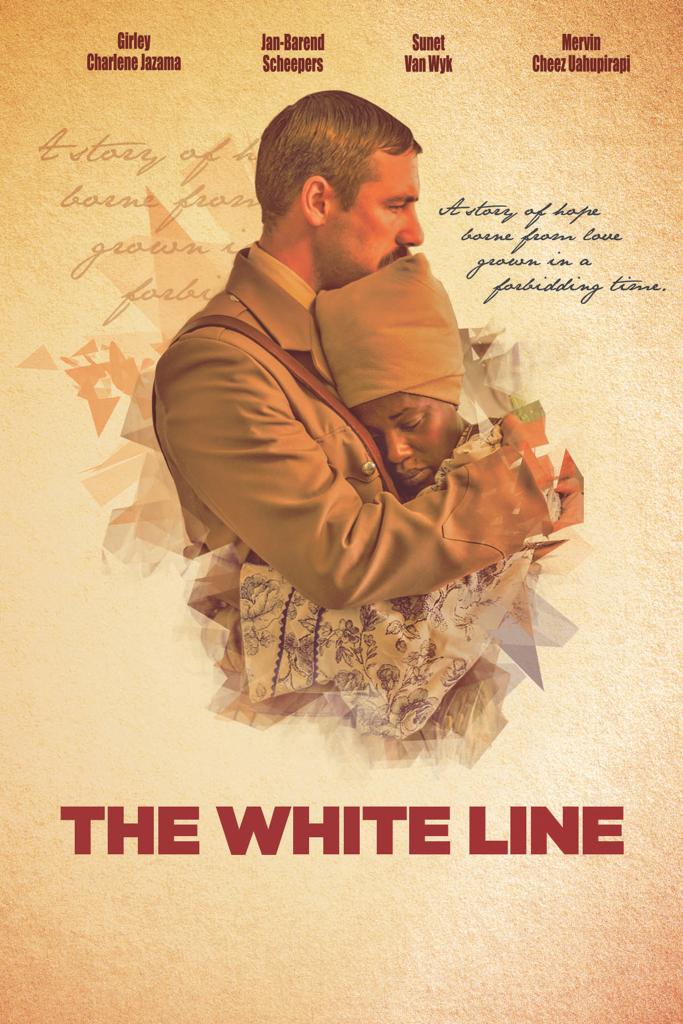Archive for August 14th, 2019
The Skin We Live In
The White Line

Director: Desiree Kahikopo
Cast: Jan-Barend Scheepers, Girley Charlene Jazarama, Sunet van Wyk, Mervin Uahupirapi
Director Desiree Kahikopo’s stunning Namibian film The White Line had its South African film premiere at the 40th Durban International Film Festival and I was lucky enough to catch a screening of it at the Suncoast Entertainment Complex.
The White Line had a Theatrical release at Ster Kinekor Cinemas in Namibia on 13th November 2020.
Admittedly, I have not seen many films from the Namibian Film Commission or films that deal so brilliantly with Namibia’s tortured past prior to independence in 1990 when it was called South West Africa which fell under the special administrative region of the then South African Apartheid government.
The White Line superbly deals with the complexities of an inter-racial relationship when it was a crime for black and white persons to have a sexual relationship under the immorality act. Set in 1963, The White Line tells the story of a young South West African white policeman Pieter de Wit played by Jan-Barend Scheepers who falls in love with his black domestic worker Sylvia Kamutjeno wonderfully played by Girley Charlene Jazarama.
More significantly, The White Line deals with the ugly overt racism that existed in South West Africa especially evident in the Afrikaner rural community displayed by the policeman’s sister and husband who are inevitably shocked when he confesses his affair to his brother-in-law.
The consequences are far worse for the domestic worker who is imprisoned for breaking the immorality act. In a particular poignant scene, the two main characters have an argument in the desolate Namibian countryside at dusk whereby Sylvia tells Pieter that he has no idea how difficult it is to live in the skin she has.
The White Line is framed by the 1990 opening scenes of Namibia’s formal independence as a newly formed African country and how that independence comes with the gradual reconciliation of past secrets and a passionate plea for acceptance and diversity for Namibia’s post-independence born free generation.
The White Line is a stunning film, simply told with most of the dialogue in Afrikaans with English subtitles and is a superb example of the emerging talent of Namibian cinema.
At the Q and A after the screening, I asked the director if The White Line is going to receive a commercial release in South Africa and she assured me it will. When The White Line completes the festival circuit and does receive a commercial release, audiences should make an effort to watch it.
The White Line is a fascinating portrait of interracial love at a time when immorality was infused with political supremacy and the desires of the individual was crushed by the unjust laws of the pre-independence Apartheid South African state which governed the barren South West African territory.
Namibian director Desiree Kahikopo’s engrossing film The White Line gets a film rating of 7.5 out of 10 and is recommended viewing. Audiences should watch this film, but be aware that it deals with the issue of racism explicitly.